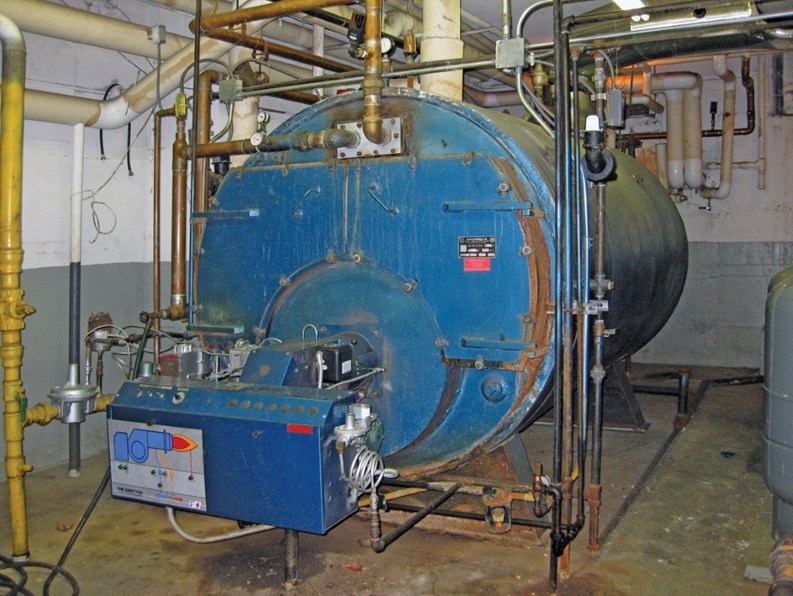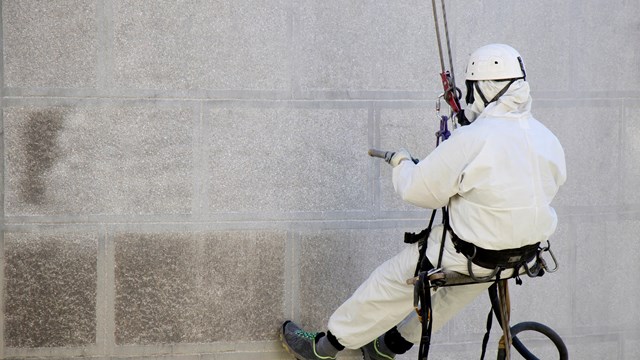With the economy still in the weeds and building administrators looking for creative ways to save money and build up their bottom line, it’s no surprise to hear that co-ops and condos are taking a hard look at their maintenance and building improvement wish lists and making some tough decisions. They’re reassessing which projects they can afford to undertake and which ones they need to put off until later.
But is putting off a project merely postponing the inevitable? Will sitting tight in the hopes that the economy will improve court disaster in the form of an equipment meltdown or a lawsuit? Is there a formula that building administrators can employ to help them make intelligent decisions as they try to reshuffle their priorities and steer their communities through murky financial waters? Is this a wise decision though and what can happen if a building puts off a repair, but it ends up injuring someone or causing damage to the building?
To address those questions and others, The Cooperator spoke with a number of industry professionals and got their advice for boards in just this situation.
Code Reds
According to the experts, the only repairs that boards can really defer for any significant period of time are discretionary items, such as aesthetic repairs—like a front lobby or hallway renovation. “Another example,” says Eric Goidel, a partner with the Manhattan-based law firm of Borah Goldstein Altschuler Nahins & Goidel PC, “is if your building’s elevators are functioning, but look a little tired and could use an upgrade. That can be postponed.”
Anything else must be dealt with as soon as the situation arises, regardless of how squeamish a board may be about ponying up the funds.
David Hochhauser, a vice president with Isseks Bros., a Manhattan-based roof tank company, explains the consequences of delaying certain repairs.
“Generally, when it comes to deferred maintenance, it does not make sense to wait with tanks because water loss or floods due to a leaking tank can cause far more damage then the cost to correct these issues,” says Hochhauser. “In a tight economy, the replacement of a tank can generally be delayed 12 to 18 months, if the tank is repaired by a qualified mechanic. Insulation of pipes, leaking pipe risers or tanks, faulty pump control switches, and dilapidated tank covers are all items that should not be deferred.”
As a rule of thumb, anything that impacts the safety of residents or their property is an absolute must-do—fire escapes, any kind of water damage, and providing heat in the winter take precedence over sprucing up the common areas, in other words.
“Board members have a fiduciary duty to make sure their buildings are properly maintained, and that repairs are made where necessary,” says Goidel. “Capital improvements must be done when items reach the end of their useful lives, otherwise you’re opening up the building to claims of waste and mismanagement. There are covenants in mortgages that the building and property will be maintained and in good repair. Not doing so can open the building to code violations too.”
When we often think of maintenance for fire prevention and safety, less obvious building systems can be overlooked.
“The city requires that all domestic water tanks be cleaned on an annual basis,” says Hochhauser . Therefore, the new city ordinance with respect to annual tank inspections is somewhat redundant. However, if the tanks serve fire protection systems then it is not redundant.”
Scott A. Breyer, a marketing and sales associate at Walter R. Breyer Real Estate Company in Oradell, New Jersey agrees, pointing out that inadequate maintenance—even when done with otherwise good intentions—has the potential to compound physical problems with legal ones to cause even bigger headaches. He cites a building he worked with where residents formed a class action suit against building administrators for not providing essentials like heat, and not keeping fire escapes up to code.
“It’s bad stuff,” he says. “Safety is the most important thing, including such things as fire escapes, walkways, parking areas and snow removal—anywhere where someone can get hurt. Fire escapes are very important to keep up on. If there’s a fire and your residents can’t get out because of your negligence, it can lead to a tragedy. After that, it’s the needs of living, especially heat.”
Plan & Prioritize
One of the most crucial steps in squaring up a building’s budget with its maintenance needs is assessing the condition of the building and its various component systems.
Obviously, says C. Jaye Berger, a New York City real estate and co-op attorney, the clearest sign of an impending maintenance crisis is when systems keep breaking down even after they have been repaired. Some buildings keep patching things, because they either want to postpone replacing the system or cannot afford to.”
“Buildings should have periodic surveys done of their major systems to help them determine when they need to be repaired and when they need to be replaced,” Berger continues. “Boards need to seek advice from engineers and architects about what needs to be done and how to prioritize the work. Perhaps it can be done in phases.”
Bringing in a professional to do a capital assessment also has the benefit of covering the board, should they opt to hold off on a given project. “If the board can’t afford to pay for a repair, they can get an opinion from an engineer that says the work can be deferred,” says Goidel. “It’s a protection that they can put off the repair when they thought that it might need to be done this year.”
According to Hochhauser, “Items that can be deferred are things like the painting of tank hoops and supporting structure, as well as the above mentioned replacement.”
If a board puts off even the assessment process however, they’re playing with fire, Goidel adds. “It takes strength of character to run a building and get a balanced budget,” he says.
“There’s not much wiggle room for a board to say, ‘We’re not going to do this.’ Something that’s important needs to be done and they need to find the financial strength among the shareholders to pay for the repair.”
When there aren’t adequate funds to achieve this in the reserve, says Breyer, “There needs to be an assessment.” Nobody likes assessments—boards usually hate levying them, and residents hate having to pay them—but in an emergency situation, there’s often no choice but to pull the trigger and do it.
“The problem now is that when you have an economy like this, some residents stop paying mortgages and maintenance fees,” Breyer continues, “and the condo board and management have no alternative but to take the unpaid fees from the other owners.”
Dire Consequences
If a board chooses to gamble with not making repairs even after a reserve study indicates what needs immediate or very prompt attention, they are swimming in some very precarious waters.
“If they knew that the repair was necessary because they got an opinion from someone—a contractor, an engineer, etc.—but consciously ignored it to save money and there’s a catastrophic problem, it opens up the building to a lawsuit,” says Goidel. “Whether the decision to defer the work is protected by the business judgment rule which gives room on making a decision, it doesn’t protect them against actions in bad faith, or any actions that can arguably be made in self-interest.”
“Once a board has actual notice of a problem, the liability is greater,” adds Berger. “Think about an example of a cracked sidewalk. If the building has notice of the problem and fails to fix it, and then someone falls and is injured, the negligence is fairly clear. Shareholders may be experiencing constant leaks and damage to their apartments.
If the building is aware of the cause and does nothing to fix it, there may be a greater basis for damages,” she says.
The upshot of this, say the experts, is that it’s not enough for building administrators to merely patch things up as they break or wear out and leave it to future board members to deal with the hassle and expense of replacement. A good board is proactive about bringing in qualified consultants to assess the condition of their building and its component parts, and conscientious about carrying out the advice their architect or engineer gives them. Not doing so can have dire consequences in both the short and long term.
Lisa Iannucci is a freelance writer and author of “The Complete Idiot’s Guide to Success as a Property Manager,” (Alpha, October 6, 2009).







Leave a Comment